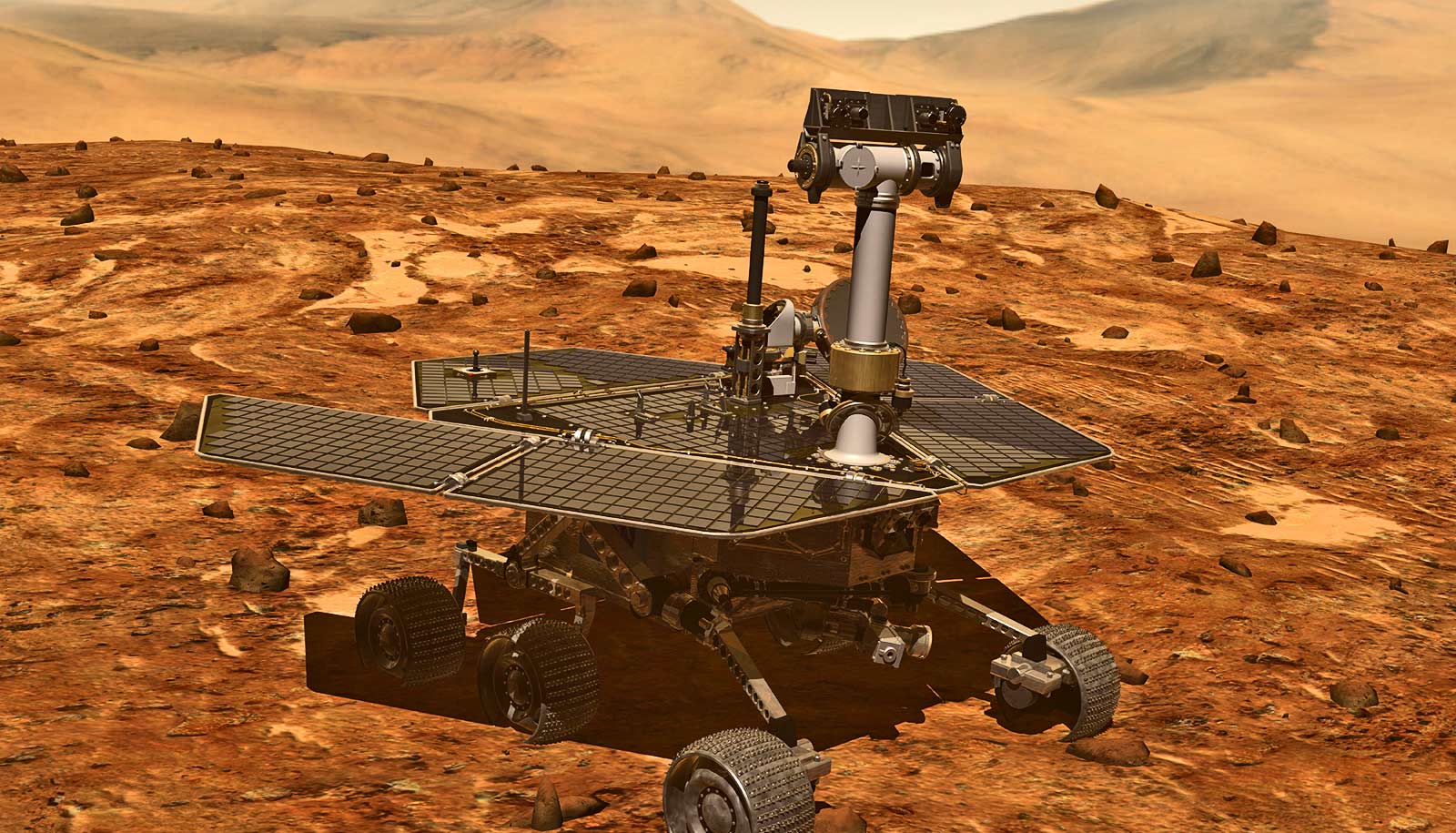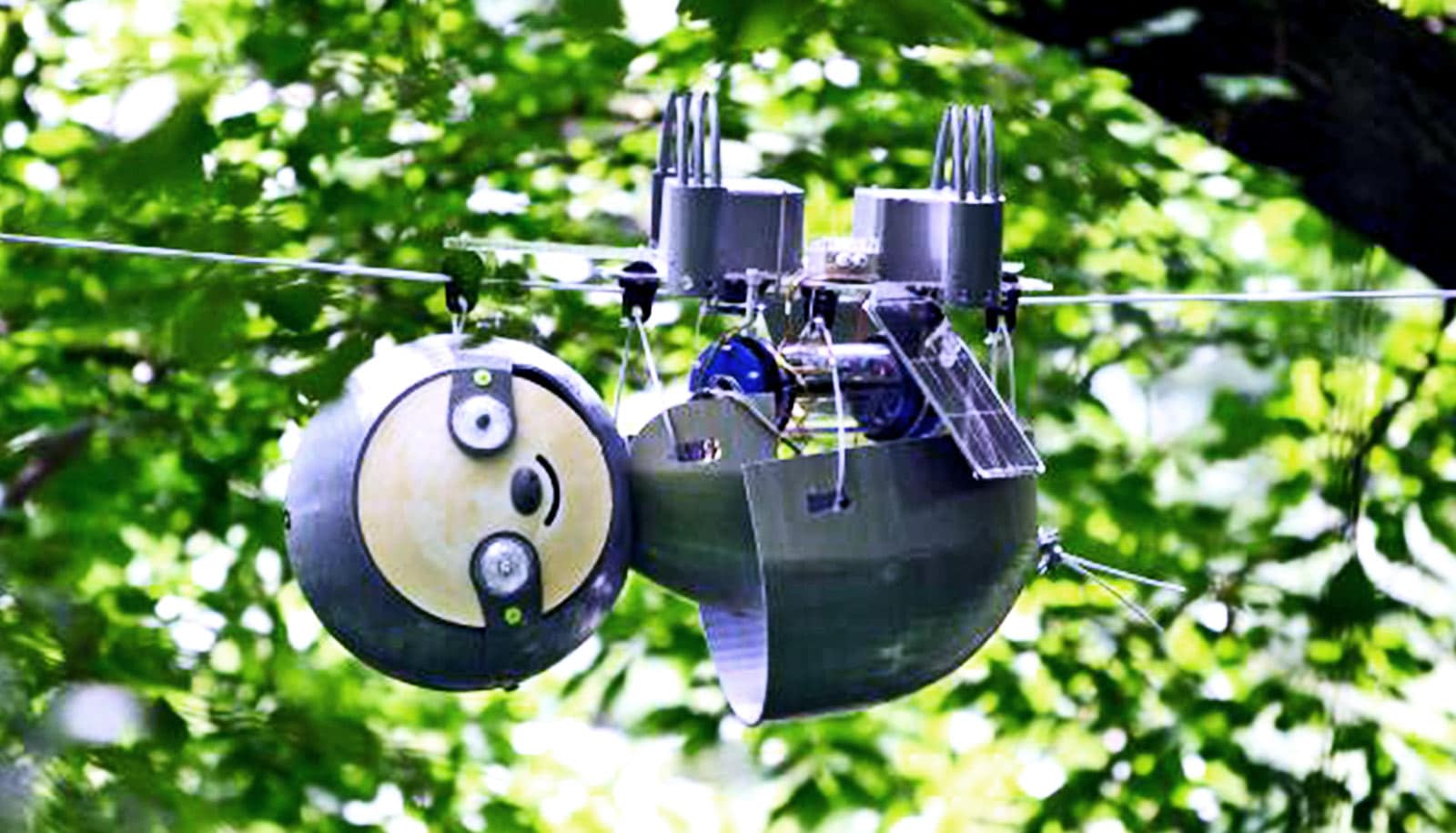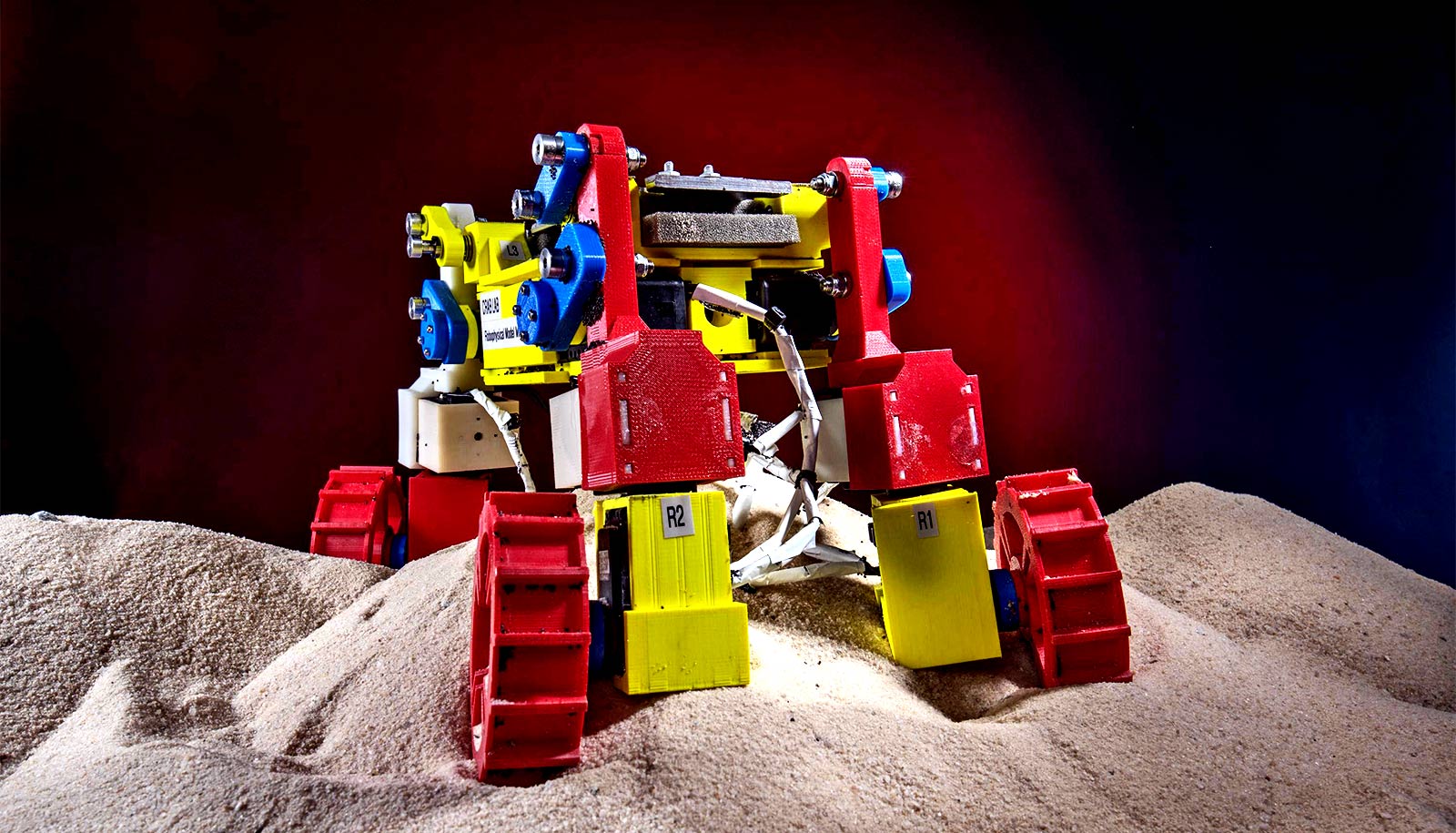It’s hard for people to discern tweets about the “death” of NASA’s Opportunity rover from those about the deaths of humans, research finds.
“RIP Oppy” sounds like a condolence for a human, or at least a pet, but it’s actually a phrase from social media about NASA’s Opportunity rover project, which ceased communications from Mars in 2018.

“I saw the social media response to Opportunity’s mission officially ending, and people were posting all over Facebook and Twitter about how sad they were, and I was surprised by how similar it seemed to when a celebrity passes away,” says Elizabeth Carter, a project scientist in the Robotics Institute in Carnegie Mellon University’s School of Computer Science.
To determine if average users could tell the difference between tweets about robots, humans, animals, and objects, her research team presented a user group with samples of de-identified tweets about various “deaths.” These included people like Mac Miller, animals like Grumpy Cat, and robots like Opportunity and Jibo.
The researchers found that people often had a difficult time discerning the subject type of robot-related tweets, especially when it came to Opportunity. “Oppy” tweets were mistaken for being about a human 63% of the time. The pronoun “you” showed up in more than half of the sampled tweets about Opportunity. Among those, 72% spoke to the rover, with others directed at NASA and its scientists.
Since Opportunity landed on Mars in 2004, many people have learned about the rover in school and followed its research findings. Carter speculates that, as was the case with her, the project inspired many people around the world.
“It’s nice that so many people cared so much about a research project that they took to social media to respond to its completion,” she says. Carter says it illustrates the importance of educational programs and public outreach for science projects.
Carter says there has been a lot of research in lab studies about how people anthropomorphize robots, but since many people don’t have robots in their homes, there hasn’t been much opportunity to see how people respond outside the lab.
“It’s hard to study these types of things out in the world, and this was a unique opportunity to at least see how people talk about robots in these circumstances,” she says.
Researchers presented a paper on the findings earlier this year at the ACM/IEEE International Conference on Human-Robot Interaction.
Source: Carnegie Mellon University



